While the medium is galloping towards infinite possibilities, an introspective study of its past is becoming more and more necessary. One significant way in which cinema triumphs as a truly global experience is in upholding its universal character over the ages, and sustaining an all-encompassing intimate fraternity, despite attaining the proportions of a more and more industrial technological exercise.
Twentieth century auteur cinema found its lifeline in the film festivals… a celebration of independent content, fresh aesthetics and substantial experimentation. Because of these film festivals, and a critical movie-watching culture and appetite developing in cities around the world, those were undoubtedly the warmest times in the history of the craft.
Movements like Italian Neorealism and the French New Wave weren’t just artistic propositions, but also social efforts, a building of a community or guild that could communicate more effectively. The auteurs were essentially artists working with individualistic visions, and cinema has done a lot of growing up under their influence. As individual artists, they had strong opinions, inspirations and positions in the movie business.
This list tries to invoke the same intimacy, to celebrate the times and sensibilities by bringing to you a kind of dialogue between filmmakers. The auteurs of 20th century world cinema, introduced by compiling the praises, recommendations and opinions of other filmmakers, are the elements this list primarily presents… in the process, delivering an interactive insight into the inspiring past of the craft.
Just to make the list less chaotic:
1. All English language filmmakers have been excluded. It’s a very large and talkative ecosystem to contain here.
2. All filmmakers whose major work was in the silent era are excluded. Can’t justify this. Just to contract the list.
1. About Fritz Lang
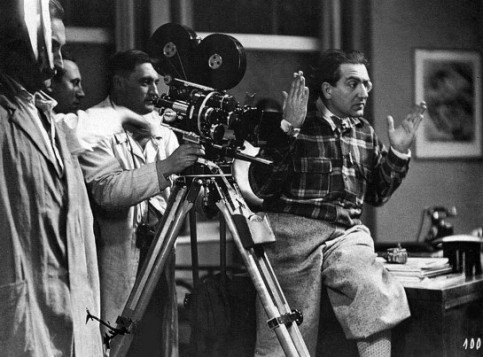
One of the most influential pioneers of truly individualistic cinema was indeed the German-Austrian director, Fritz Lang whose ventures have an encyclopedic significance to this day. Known as the “master of darkness” for his thematic and cinematographic preferences, this formerly underappreciated champion of the German expressionism is an ideal person to begin the list with.
François Truffaut, with Cahiers du cinema, had thoroughly re-evaluated his work and said that his American was underappreciated by cinema historians and critics, who “deny him any genius when he ‘signs’ spy movies… war movies… or simple thrillers”. Fritz Lang was a director for hire in his Hollywood days, and despite the very intellectually infantile nature of some of his projects, he had managed to keep a meritorious mark. This was the sign of an individuality surviving amidst an increasingly commercialized art, and therefore making him an important auteur. Truffaut writes “Fritz Lang, as he was developing, purified his style as Renoir, Hitchcock and Hawks did. Lyricism and humour have way to bitterness and sour criticism. Hardly any effects left except a unique mastery and a technical sureness. Yes, and I dare write that today Fritz Land is greater, and above all deeper, even if he pleases less”.
Luis Bunuel always named Lang as his favourite director. Buñuel’s said about Fritz Lang’s Der müde Tod: “I came out of the Vieux Colombier [theater] completely transformed. Images could and did become for me the true means of expression. I decided to devote myself to the cinema”. Years later, at the age of 72, Bunuel would approach Lang for an autograph. He further said- “The films that influenced me the most, however, were Fritz Lang’s. When I saw Destiny (1921), I suddenly knew that I too wanted to make movies. It wasn’t the three stories themselves that moved me so much, but the main episode–the arrival of the man in the black hat, whom I instantly recognized as Death, in a Flemish village, and the scene in the cemetery. Something about this film spoke to something deep in me; it clarified my life and my vision of the world. This feeling occurred whenever I saw a Lang movie, particular the ‘Nibelungen’ movies, and Metropolis”
Jean-Luc Godard had a famous association with the director, mostly for casting him as himself in Contempt, and also for an hour long interview between them, which remains one of the most treasured archives in cinema history.
In the interview Godard says that though Lang was an “older filmmaker”, what strikes him “is your extreme youth, you are always interested in the moments in which things are born, as if they were taking place for the first time. You are always interested in new issues.”
2. About Jean Renoir
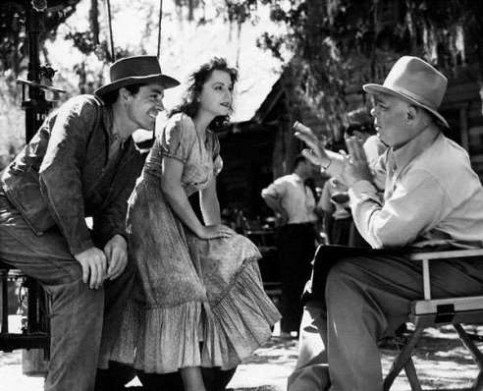
French cinema has forever been on the forefronts in the auteur league. And the reason could be condensed in just one name- Jean Renoir, son of one of the greatest French painters of all time. With his great originality, wit, humanity and musical effectiveness, he can be considered the greatest filmmaker of all time.
Francois Truffaut called him the “world’s greatest filmmaker”, and said about him- “I think Renoir is the only filmmaker who’s practically infallible, who has never made a mistake on film. And I think if he never made mistakes, it’s because he always found solutions based on simplicity—human solutions. He’s one film director who never pretended. He never tried to have a style, and if you know his work—which is very comprehensive, since he dealt with all sorts of subjects—when you get stuck, especially as a young filmmaker, you can think of how Renoir would have handled the situation, and you generally find a solution.”
Eric Rohmer, another champion of the French New Wave said about Renoir- “Renoir is something else; he represents another current. Renoir is no longer at all existentialist. But he’s modern. More expressionist than impressionist. […] There’s a Brechtian side to him as well, a certain didacticism, but much more deeply buried. I might have been opposed to Brecht as a film critic, and none of Brecht’s ideas, in fact, have come to the cinema, except perhaps through Renoir. You mustn’t look for Renoir’s modern-ism in the same place you find it in Antonioni or Wenders: it’s com-pletely different; it’s unique, inimitable. Renoir is the least theatrical of all the filmmakers, the one who goes the furthest in his criticism of the theatre and, at the same time, the one who is closest to the theatre.
It’s a total paradox. It’s the paradox of film, which is an art without being an art, performance without being performance, theatre without being theatre – which rejects theatre, in fact. For me, in this sense, Renoir is the greatest of them all; I can see his films over and over and always find something new, and just the fact that his importance has not yet been recognised proves to me that he is in fact the greatest.”
That the French New Wave would be inspired by Renoir is almost obvious. But he further reached out to remote talents in the world.
Satyajit Ray found a mentor in Renoir whom he assisted when the latter visited Calcutta for shooting The River. Ray was inspired by many of Renoir’s remarkable qualities. “A feeling for nature, a deep humanism with a preference for the shades of grey, a sort of Chekovian quality; and his lyricism and the avoidance of clichés.” Ray describes his encounter with the giant- “I was full of admiration for him, and I looked up to him. Sometimes one is disappointed on meeting an artist one admires, because as a person he turns out as someone you can’t warm to, can’t get close to. But Renoir was such a wonderful man- deep, gentle, humorous.”
Jean-Luc Godard, discussing two categories of filmmakers said “The first make circular films; the others, films in a straight line. Renoir is one of the few who do both at the same time, and this is his charm. “
Upon his death, Orson Welles called him “the greatest of all directors”
Robert Altman who was said to be a stylistic successor of Renoir praised his best known film with the words- “The Rules of the Game taught me the rules of the game.”
Martin Scorsese said about the genius- “I remember seeing Renoir’s films as a child and immediately feeling connected to the characters through his love for them.”
Mike Leigh, who is known to be the contemporary maker closest to Renoir’s sensibility, said “I consider Jean Renoir to be my only master.”
3. About Luis Bunuel
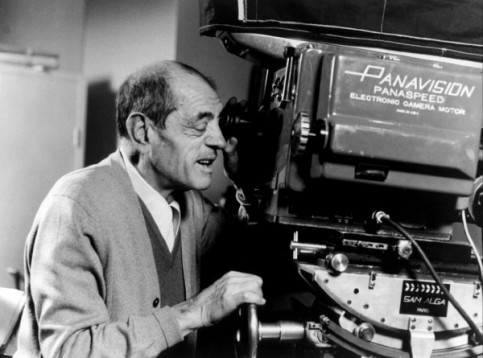
A surrealist to the core, one of the pioneers of that school of art from 1920’s Paris, this immortal man of imagination and structural insanity gave cinema not only an area, but a reason to experiment wildly. Communicating with the subconscious with hypnotic pictures of sublime fantasy, he is probably the father of everything queer and psychedelic about the films.
Luchino Visconti, himself an auteur of celestial proportions, said- “I think today there are too many directors taking themselves seriously; the only one capable of saying anything really new and interesting is Luis Bunuel. He’s a very great director.”
François Truffaut made an analysis of his work, saying- “Luis Buñuel is, perhaps, somewhere between Renoir and Bergman. One would gather that Buñuel finds mankind imbecilic but life diverting. All this he tells us very mildly, even a bit indirectly, but it’s there in the overall impression we get from his films.”
Orson Welles had a high regard for his themes- “Jesus, it’s all true. He’s that kind of intellectual and that kind of Catholic [. . .] A superb kind of person he must be. Everybody loves him.”
Michael Powell was a true admirer of his work- “My master in film, Buñuel was a far greater storyteller than I. It was just that in my films miracles occur on the screen.”
Wes Anderson whose approach to detailing the film has a striking resemblance with that of Bunuel said- “Mike Nichols said in the newspaper he thinks of Buñuel every day, which I believe I do, too, or at least every other.”
The beloved Jane Campion said “Buñuel is my first deep love in cinema. He is the adult that pulled the plug on the human art of pretending. He blazes through the hypocrisy at the heart of our bourgeois lives mercilessly—no one is sacred, no ideal or moral is spared. He is perfectly modern, bold, and clear. I found myself laughing in joy and amazement. He understands human nature while refusing to sentimentalize it.”
Pedro Costa, himself known for delivering wonderful social critiques was impressed by Bunuel’s work- “Luis Buñuel always reminds us of what we’re constantly losing in this rotten society.”
Pedro Almodovar said “I really recognise myself in his films. For me, he is a real master.”
4. About Robert Bresson
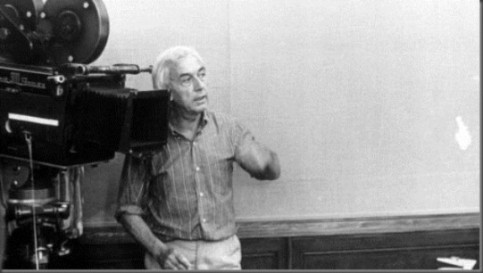
Robert Bresson, apart from being an immensely influential creator from the early years of individualistic cinema, was the greatest embroiderer of spirituality and simplicity in the medium, with his serenely religious mirrors of human conditions.
Jean-Luc Godard said about this genius- “Bresson is to French cinema what Mozart is to German music and Dostoyevsky is to Russian literature.”
Andrei Tarkovsky said- “Bresson is a genius. Here I can state it plainly — he is a genius. If he occupies the first place, the next director occupies the tenth. This distance is very depressing. When I am working, it helps me a lot to think of Bresson. Only the thought of Bresson! I don’t remember any of his works concretely. I remember only his supremely ascetic manner. His simplicity. His clarity. The thought of Bresson helps me to concentrate on the central idea of the film. Robert Bresson is for me an example of a real and genuine film-maker… He obeys only certain higher, objective laws of Art.”
Louis Malle said- “There’s something in the way Bresson makes films which puts me in mind of a certain French tradition that comes from Racine. I don’t really think that I was influenced by Bresson, but I would say that I wish I had been.”
5. About Roberto Rossellini
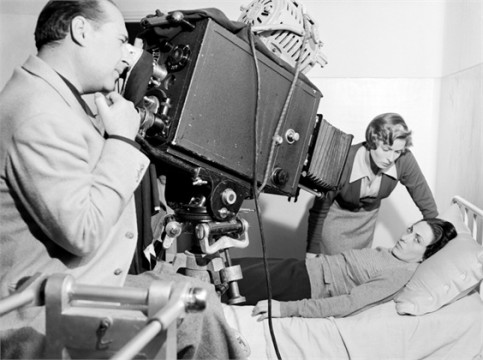
The pioneering neorealist is an immortal landmark for his breathtakingly inventive treatment of the rawest of content and opinions. He probably still remains the unsurpassed expert of subtle philosophical expression in the movies.
Jean-Luc Godard probably made the most subtly exalting comment on this genius he admired greatly when while talking about the qualities of directors, he said- “Socrates, Rossellini I mean, who creates philosophy.” He further said- “Rossellini is something else again. He alone has an exact vision of the totality of things.”
Martin Scorsese thoroughly introduces us to the man’s revolutionary body of work with the words- “He changed cinema three times. First, he and Vittorio De Sica started what was called ‘neo- realism.’ Then, with his wife Ingrid Bergman, he made a series of intimate, almost mystical stories like Stromboli and Europa ’51. Europa ’51 is about two people in a car–it’s what became the New Wave of cinema in the ’60s. At the end of his career, he directed a series of didactic films for Italian television– he always felt a duty to inform.”
The legendary visionary Federico Fellini, who often stated that he learned the craft while assisting Rossellini said- “I liked Rossellini’s way of filmmaking, like a pleasant journey, an outing among friends. It seems to me that was how it all started.”
6. About Yasujiro Ozu
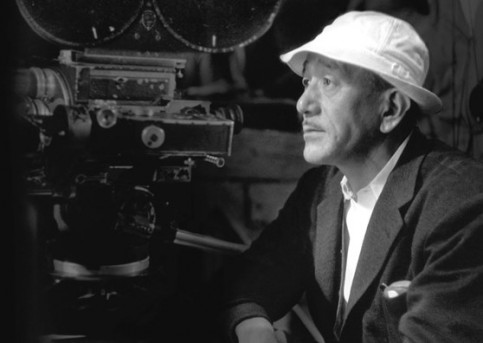
Japanese artistic cinema’s influential place in the global scenario of that time can be traced back entirely to the contributions of Yasujiro Ozu, who till today is remembered for delivering some of the most compelling human experiences with a “fluency” in the medium.
Akira Kurosawa, the eternal symbol of Asian cinema said- “Indeed, one can learn pretty much from his movies. Young prospective movie makers in Japan should, I hope, see more of Ozu’s work.”
The masterly Wim Wenders was a great admirer of Ozu’s work. He said- “If in our century, something sacred still existed, if there were something like a sacred treasure of the cinema, then for me that would have to be the work of the Japanese director Yasujirô Ozu… For me never before and never again since has the cinema been so close to its essence and its purpose: to present an image of man in our century, a usable, true and valid image in which he not only recognises himself, but from which, above all, he may learn about himself.”
Gotz Spielmann owed his style to the master, and said- “Ozu for me is like a big brother who helps me remember from time to time the really important things about the form of moviemaking, which have nothing to do with manipulating the audience or being clever. Form can have something to do with truth.”
Satyajit Ray, whose humanistic cinema had a striking resemblance with Ozu’s work, said about him- “I have repeatedly seen some of his films and thought, “My God, he doesn’t follow at all the Hollywood model or grammar.” Ozu has another approach, which one can call a devotion to the geography of actors in their setting. This form of his is original, and it is fundamental enough to necessitate a thorough reassessment of the so-called first principles of filmmaking.”
7. About Vittorio De Sica
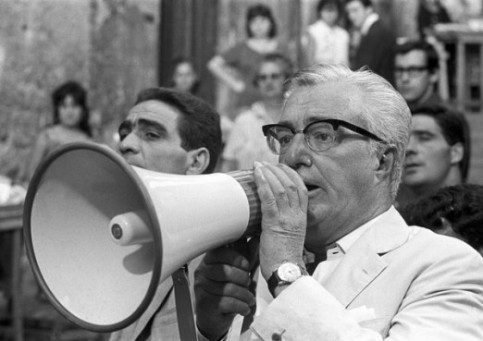
The most visually stunning novelist of all time, the face of Italian Neorealism has inspired generations of masterpieces, observing in a grammar of exquisite control and realism, many socio-political impacts.
Federico Fellini said- “Great power of achievement, and a master of his actors. He stems from our marvelous era of neorealism. He is a very good director, someone almost untouchable, because of the special place he occupied after the war.”
Luis Bunuel, whose grammar was absolutely unlike neorealism, said that he “especially liked Shoeshine, Umberto D, and The Bicycle Thief, where he succeeded in making a machine the star of the movie.”
Orson Welles articulated his admiration in the most apt words- “In handling a camera I feel that I have no peer. But what De Sica can do, I can’t do. I ran his Shoeshine recently and the camera disappeared, the screen disappeared; it was just life . . .”
Satyajit Ray, whose early career could be entirely seen as a tribute to De Sica said- “The first film I saw in London was De Sica’s Bicycle Thieves. I came out of the theatre my mind fully made up. I would become a filmmaker.”
Roy Andersson said- “When I was 12, they showed Vittorio de Sica’s neorealist Bicycle Thieves (1948) at my youth center. I think it’s the most empathic, human and intelligent film ever made. I was so moved by the fact that there were people out there who had taken upon them to make a film, told with such warmth and love of humanity, about socially unimportant people, like an unemployed family father being robbed of the bike he needs to get a job. It definitely influenced me to become a filmmaker.”
8. About Kenji Mizoguchi
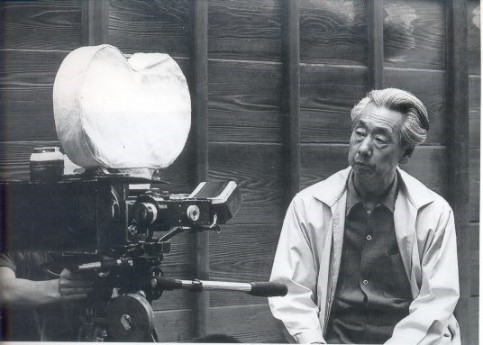
The beloved Japanese director has probably made around two hundred films and had reinvented beauty in the medium in the most modern sense for his time. He is endeared by generations of filmmakers since him for his true creativity.
Jean-Luc Godard, who as a critic was a great admirer of Mizoguchi’s great expressions, upon his death said- “The greatest of Japanese filmmakers. Or, quite simply, one of the greatest of filmmakers.” He further justified- “If poetry is manifest in each second, each shot filmed by Mizoguchi, it is because, as with Murnau, it is the instinctive reflection of the film-maker’s creative. Mizoguchl’s art is the most complex because it is the simplest. Camera effects and tracking shots are rare, but when they do suddenly burst into a scene, the effect is one of dazzling beauty.”
Andrei Tarkovsky whose cinema was indebted to the revolutionization of long shots and poetic designs of human behaviour of Mizoguchi said about him- “One of the “exalted figures who soar above the earth… such an artist can convey the lines of the poetic design of being. He is capable of going beyond the limitations of coherent logic, and conveying the deep complexity and truth of the impalpable connections and hidden phenomena of life.”
Orson Welles declared that “No praise is too high for him.”
Martin Scorsese said- “Mizoguchi is one of the greatest masters who ever worked in the medium of film; he’s right up there with Renoir and Murnau and Ford, and after the war he made three pictures—The Life of Oharu, Ugetsu, and Sansho the Bailiff—that stand at the summit of cinema. All of his artistry is channeled into the most extraordinary simplicity.”
Akira Kurosawa said, upon the death of one of his creative anchors and companions- “Of all Japanese directors I have the greatest respect for him. . . . With the death of Mizoguchi, Japanese film lost its truest creator. Now that Mizoguchi is gone, there are very few directors who can see the past clearly and realistically.”
9. About Federico Fellini
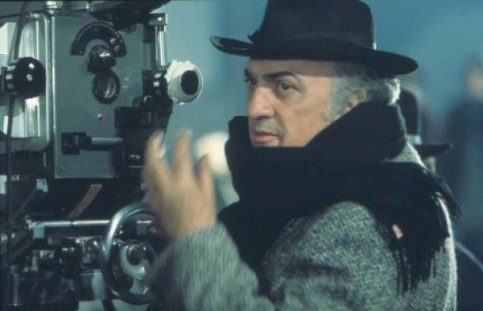
A director who parented some of the most modern sensibilities of cinema, Fellini remains a voice of invention that will echo as long as cinema and thought exists. Probably one of the most creative Italians of the twentieth century, all mediums considered, his films were as much paintings as they were fairy tales… about a Rome that continues to bemuse cinephiles with a social enigma.
Akira Kurosawa in his famous warm manner, said- “Fellini’s cinematgraphic art is excellent. It’s in itself ‘fine art’. Nowadays no one has such a peculiar talent more… One feels in his movies, say, an existential power, which has a strong impact. Well, I met him several times, but he was so shy that he didn’t talk about his movies to me.”
Ingmar Bergman, who shared Fellini’s appetite for innovation was probably the most applausive of his contemporaries said- “Fellini is Fellini. He is not honest, he is not dishonest, he is just Fellini. And he is not responsible. You cannot put moralistic points of view on Fellini; it is impossible. He is just—I live him.” During the infamous creative block Fellini had witnessed, Bergman said- “He is enormously intuitive. He is intuitive; he is creative; he is an enormous force. He is burning inside with such heat. Collapsing. Do you understand what I mean? The heat from his creative mind, it melts him. He suffers from it; he suffers physically from it. One day when he can manage this heat and can set it free, I think he will make pictures you have never seen in your life. He is rich. As every real artist, he will go back to his sources one day. He will find his way back.”
Andrei Tarkovsky who was an inventor of equal ranks, said- “I like Fellini for his kindness, for his love of people, for his, let`s say, simplicity and intimate intonation. If you would like to know – not for popularity, but rather for his humanity. I value him tremendously.”
Louis Malle said in an interview- “Well, Fellini… there is always Fellini”
Terry Gilliam analysed Fellini’s work- “I think Fellini just told me things about my future. He told me about the process of life. He told me things about the process of life. He told me things about memory that all seems true and honest and believable, even though he lies the whole time. That’s what I love about Fellini, he’s a liar. He’s a constant liar. He twists and distorts the truth. Now whether any of us saw the world like Fellini showed us until he actually made his films I don’t know. I have that terrible feeling he opened our eyes to a world that was sitting there all alone. Those of us who followed could come and see the world that he saw.”
Martin Scorsese, whose directorial genius echoes with some of Fellini’s choices, praised him referring to Eight And A Half- “What would Fellini do after La dolce vita? We all wondered. How would he top himself? Would he even want to top himself? Would he shift gears? Finally, he did something that no one could have anticipated at the time.”
Jane Campion said- “Fellini is a deep, deep master of film. As time goes by I adore him more and more.”
David Lynch, who shared both Fellini’s fascination for dreams and birthday said- “I love Fellini [. . .] His is a totally different time, and an Italian take on life. But there’s something about his films. There’s a mood. They make you dream. They’re so magical and lyrical and surprising and inventive. The guy was unique. If you took his films away, there would be a giant chunk of cinema missing. There’s nothing else around like that. I like Bergman, but his films are so different. Sparse. Sparse dreams.”
10. About Satyajit Ray
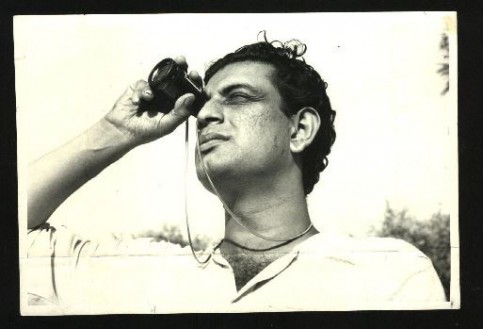
One of the greatest humanists in cinema, whose films are known for their profoundly beautiful and adaptive visual and structural compositeness and thematic choices reflecting the human moral attitude, was the only representative of the glowing artistic culture of India at that time, despite the infantile gimmick of the local industry.
Akira Kurosawa said- “The quiet but deep observation, understanding and love of the human race, which are characteristic of all his films, have impressed me greatly. … I feel that he is a giant of the movie industry. … Not to have seen the cinema of Satyajit Ray means existing in the world without seeing the sun or the moon.”
Jean Renoir, also known as his mentor, said- “I think he has it in his blood. Though he is very young still, he is the father of Indian cinema.”
Martin Scorsese, who considered showing his daughters The Apu Trilogy one of his responsibilities as a father, said- “I remember going to see my first film of his at 15 and witnessing a whole new world presented visually before my eyes. Without a doubt, in his films the line between poetry and cinema, dissolved… His work is something that I personally cannot wait to show my own daughter, once she is old enough to understand them.”
Mike Leigh, one of the greatest contemporary storytellers thoroughly inspired by Ray whose humanistic compassion borrows elements from Ray, said- “coming back to Ray’s cinema has been like returning to a succulent banquet, or experiencing a series of clairvoyant flashes. I emerge from each of his films with a newly sharpened view of the world.”
Wes Anderson, who was motivated by Ray to pursue novelistic themes and make a film on India (Darjeeling Limited was dedicated to Ray) said- “His films feel like novels to me. He draws you very close to his characters, and his stories are almost always about people going through a major internal transition.”
Elia Kazan said “I want to add my voice to those of Scorsese and Merchant in asking the Academy grant Satyajit Ray an Honorary Lifetime Achievement Award. I have admired his films for many years and for me he is the filmic voice of India, speaking for the people of all classes of the country…He is the most sensitive and eloquent artist and it can truly be said in his case that when we honor him we are honoring ourselves.”
Michelangelo Antionioni said- “My admiration for Satyajit Ray is total. I am very thankful to him because through his films I have known India with a deep insight.”
11. About Ingmar Bergman
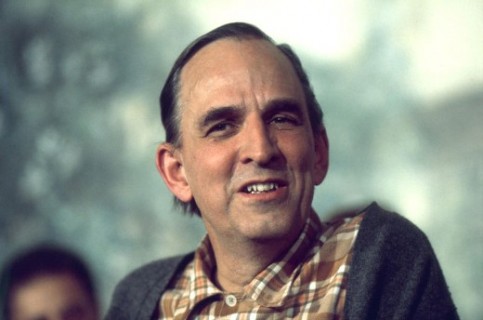
One of the greatest thinkers to enter into the craft of cinema, Ingmar Bergman created moments, philosophy, and characters in the most inquisitive way possible. The thoroughly symbolic and emotive storyteller would continue to motivate simple originality and boldness of content for as long as the medium exists, and would never lose a bit of its modernity.
Woody Allen, a thoroughly inspired mind himself, said about Bergman that he was “probably the greatest film artist, all things considered, since the invention of the motion picture camera”
Federico Fellini, his partner in inventiveness said- “First of all, he is a master of his metier. Secondly, he is able to make things mysterious, compelling, colorful and, at times, repulsive. […] Like a medieval troubadour, he can sit in the middle of the room and hold his audience by telling stories, singing, playing the guitar, reading poetry, doing sleight of hand. He has the seductive quality of mesmerizing your attention. Even if you’re not in full agreement with what he says, you enjoy the way he says it, his way of seeing the world with such intensity. He is one the most complete cinematographic creators I have ever seen.”
Jean-Luc Godard wrote, despite Bergman disliking his work, of Bergman as one of the greatest influences- “Ingmar Bergman, the intuitive artist decried by the ‘craftsmen’, here gives a lesson to the best of our scriptwriters.” He further says- “Should anyone still doubt that Bergman, more than any other European film-maker, Renoir excepted, is its most typical representative, Prison offers, if not proof, at least a very clear symbol.”
Andrei Tarkovsky said- “I am only interested in the views of two people: one is called Bresson and one called Bergman.” And also analysed- “I don’t understand, for instance, how people can talk about Bergman’s ‘symbolism’. Far from being symbolic, he seems to me, through and almost biological naturalism, to arrive at the spiritual truth about human life that is important to him.”
Stanley Kubrick, a great admirer of his work, said- “His vision of life has moved me deeply, much more deeply than I have ever been moved by any films. I believe he is the greatest film-maker, unsurpassed by anyone in the creation of mood and atmosphere, the subtlety of performance, the avoidance of the obvious, the truthfulness and completeness of characterization.”
Krzysztof Kieslowski, one of his contemporary equivalents said- “This man is one of the few film directors — perhaps the only one in the world — to have said as much about human nature as Dostoyevsky or Camus.”
Martin Scorsese said- “I guess I’d put it like this: if you were alive in the ’50s and the ’60s and of a certain age, a teenager on your way to becoming an adult, and you wanted to make films, I don’t see how you couldn’t be influenced by Bergman.”
Satyajit Ray said- “It’s Bergman whom I continue to be fascinated by. I think he’s remarkable. I envy his stock company, because given actors like that one could do extraordinary things. On my first visit to Stockholm I was particularly keen to meet Bergman as I had been a great admirer of his work ever since I saw The Seventh Seal way back in mid-fifties. Bergman of today is not the Bergman of thirty years ago. He has pared down his style to a chamber music austerity. But he is still capable of handling big subjects.”
Paul Schrader said- “I would not have made any of my films or written scripts such as Taxi Driver had it not been for Ingmar Bergman. What he has left is a legacy greater than any other director. I think the extraordinary thing that Bergman will be remembered for, other than his body of work, was that he probably did more than anyone to make cinema a medium of personal and introspective value.”
Ang Lee said- “For me the filmmaker Bergman is the greatest actor of all. His vision and his filmic force, the thing that the Frenchmen call auteur.”
Eric Rohmer said- “The Seventh Seal is the most beautiful film ever.”
“I have seen all his movies, he is a great source of inspiration to me.” Says Lars Von trier, a bold inquisitor like him.
Todd Field said- “He was our tunnel man building the aqueducts of our cinematic collective unconscious.”
Francis Ford Coppola stated- “My all-time favorite because he embodies passion, emotion and has warmth.”
Guillermo del Toro said “Bergman as a fabulist — my favorite — is absolutely mesmerizing.”
Alejandro G Inarritu said on his visit to Bergman’s house- ”If cinema was a religion, this would be Mecca, the Vatican,”
12. About Akira Kurosawa
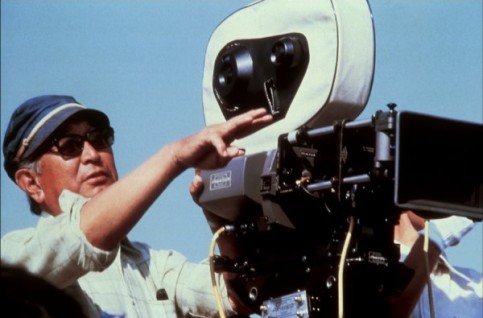
The face of Japanese cinema, sometimes a God. He is one of the greatest craftsmen of world cinema undoubtedly, and he created expression and moments with an exquisite understanding of a large number of aspects. He had an all-encompassing compassion and philosophy that immortalized his films as encyclopaedias of intelligent filmmaking. He would remain a lasting influence, as long as film is studied.
Federico Fellini admired him greatly- “I think he is the greatest example of all that an author of the cinema should be. I feel a fraternal affinity with his way of telling a story.”
Andrei Tarkovsky said- “The main thing is his modern characters, modern problems, and the modern method of studying life. That’s self-evident. He never set himself the task of copying the life of samurai of a certain historical period. One perceives his Middle Ages without any exoticism. He is such a profound artist, he shows such psychological connections, such a development of characters and plot-lines, such a vision of the world, that his narrative about the Middle Ages constantly makes you think about today’s world. You feel that you somehow already know all of this. It’s the principle of recognition. That’s the greatest quality of art according to Aristotle.”
Guillermo del Toro said- “Kurosawa’s being one of the essential masters is best represented by these, his most operatic, pessimistic, and visually spectacular films. Try and guess which is which. How he managed to be both exuberant and elegant at the same time will be one of life’s great mysteries.”
Bernardo Bertolucci said- “Kurosawa’s movies […] are the things that pushed me into being a film director.”
Martin Scorsese, who was cast in Kurosawa’s Dreams in the role of van Gogh, whose grand vision for the craft is like Kurosawa’s, said- “His influence on filmmakers throughout the entire world is so profound as to be almost incomparable.” He further said- “The term ‘giant’ is used too often to describe artists. But in the case of Akira Kurosawa, we have one of the rare instances where the term fits. Let me say it simply: Akira Kurosawa was my master, and … the master of so many other filmmakers over the years.”
Masaki Kobayashi, a triumphant representative of the following generations from his land “Kurosawa-san’s works have had a tremendous impact on Japanese filmmaking. We cannot think or talk of Japanese film without him.”
“I love Kurosawa’s movies, and I got so much inspiration from him. He is one of my idols and one of the great masters.” Said John Woo
Steven Spielberg said- “I have learned more from him than from almost any other filmmaker on the face of the earth”
Satyajit Ray said about Rashomon- “The effect of the film on me [upon first seeing it in Calcutta in 1952] was electric. I saw it three times on consecutive days, and wondered each time if there was another film anywhere which gave such sustained and dazzling proof of a director’s command over every aspect of film making.”
Zhang Yimou considered him “the quintessential Asian director”
Ingmar Bergman called his own film Virgin Spring a “touristic, a lousy imitation of Kurosawa”, and explained the impact saying, “At that time my admiration for the Japanese cinema was at its height. I was almost a samurai myself!”
13. About Jean-Luc Godard
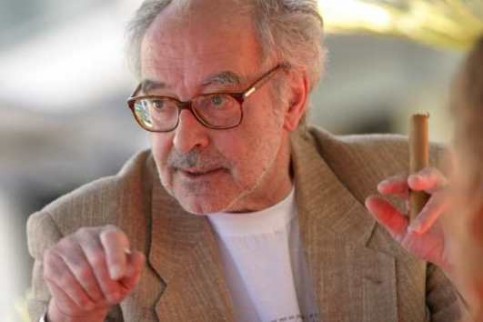
No other filmmaker had made artistic propositions as influentially as this giant of the twentieth century intellectual world. French cinema found a spirit in this poster boy of the French New Wave, as he developed idioms and delivered social ideas with the effectuality of democratization. A cultural icon of the highest ranks, Godard will represent fresh, informed and revolutionary ideas in cinema forever. Obviously his radical approach had an impact that was not unanimously positive. In fact, most of his fellow auteurs took immense pleasure in reprimanding his interpretation of the medium. So, compiling criticisms would have expanded this section unimaginably. However, there were some who found promise, some who found inspiration.
His partner and creative foe François Truffaut was both criticising and complimenting him when he said- “The talent of Godard goes toward a destructive object. Like Picasso, to whom he’s compared very often, he destroys what he does; the act of creation is destructive.”
Michelangelo Antonioni admired his Brechtian rawness and said- “Godard flings reality in our faces, and I’m struck by this.”
Orson Welles, who had a love-hate relationship with Godard’s innovations said- “He’s the definitive influence if not really the first film artist of this last decade, and his gifts as a director are enormous. […]But what’s so admirable about him is his marvelous contempt for the machinery of movies and even movies themselves—a kind of anarchistic, nihilistic contempt for the medium—which, when he’s at his best and most vigorous, is very exciting.”
Brian De Palma, was a contemporary admirer who said- “Godard is incredibly brilliant, the things he says. Apparently here in France, the most interesting thing when a new film of his is going to come out are his press conferences, because he’s so brilliant.”
Fritz Lang said- “I like him a great deal: he is very honest, he loves the cinema, he is just as fanatical as I was. In fact, I think he tries to continue what we started one day, the day when we began making our first films. Only his approach is different. Not the spirit.”
Satyajit Ray, an essentially different filmmaker who explored Godard’s style in his Calcutta Trilogy, said- “Godard especially opened up new ways of… making points, let us say. And he shook the foundations of film grammar in a very healthy sort of way, which is excellent. If Godard has a hallmark, it is in repeated references to other directors, other films (both good and bad), other forms of art, and to a myriad phenomena of contemporary life. These references do not congeal into a single significant attitude, but merely reflect the alertness of Godard’s mind, and the range and variety of his interests.”
Jane Campion elevated Godard to a heavenly status- “No one today is as modern as Godard. There has never been a more daring conceptual, chic, and irreverent filmmaker.”
Wim Wenders said- For me, discovering cinema was directly connected to his films. I was living in Paris at the time. When Made in USA opened, I went to the first show—it was around noon—and I sat there until midnight. I saw it six times in a row.
Chantal Akerman found a bizarre motivation in Godard’s work, partly from the apprehension- “He was kind of a pioneer, an inventor who didn’t care much about anybody or anything. And that a man at this stage of his life isolates himself, should also be a lesson for us other film makers.”
14. About Michelangelo Antonioni
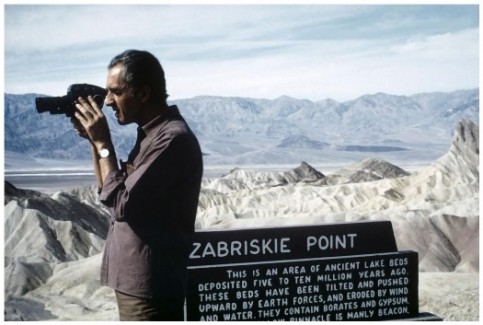
Michelangelo Antonioni was a storyteller with a keen eye for geometry… both internal and external. He was a phenomenon when he emerged, and over his mysteriously erratic career, he had managed to create masterpieces that would remain provocative in their serene observations of conflict of modern life.
Ingmar Bergman was a famous hater of Antonioni’s films. He however found Blow Up and La Notte to be masterpieces of the highest order, and ignored the rest of his work. Later, Bergman said- “The strange thing is that I admire him more now that I have met him than when I only saw his pictures; because I have suddenly understood what he is doing. I understand that everything in his mind, in his point of view, in his personal behavior is against his film-making. And still he makes his pictures.” Bergman and Antonioni by some celestial accident happened to breathe their last on the same day.
Federico Fellini, a masterly contemporary from his own country, was always a support to him- “I have respect for his constancy, his fanatical integrity, and his refusal to compromise. […]This has always made an enormous impression on me. He is an artist who knows what he wants to say, and that’s a lot.”
Andrei Tarkovsky warmly put- “Antonioni has made a strong impression on me with his films, especially with adventures… I realised then, watching this film, that “action”, the meaning of action in cinema is rather conditional. There is practically no action going on in Antonioni’s films. And that is the meaning of “action” in Antonioni films.”
Alfred Hitchcock once remarked- “This young Italian guy is starting to worry me”’
Martin Scorsese said- “Antonioni’s film changed my perception of cinema, and the world around me, and made both seem limitless. I was mesmerized by L’Avventura and by Antonioni’s subsequent films, and it was the fact that they were unresolved in any conventional sense that kept drawing me back. They posed mysteries – or rather the mystery, of who we are, what we are, to each other, to ourselves, to time. You could say that Antonioni was looking directly at the mysteries of the soul.”
Pedro Almodovar almost shatters the impression of Antonioni being boring by saying- “When I was a child, I remember very well that I saw a film by Michelangelo Antonioni. I was at school at the time, about 11 or 12, and I was deeply interested.”
15. About François Truffaut
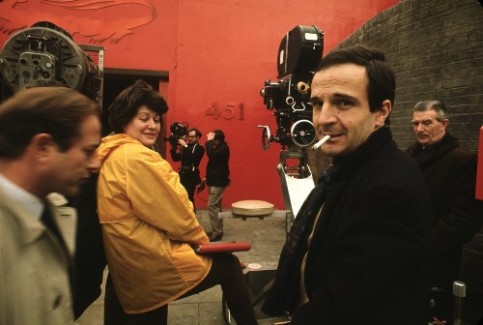
The most stimulating entertainer and inquisitor working in the French New Wave, Truffaut created a narrative style with the idioms of the French New Wave that is the closest cinema may have come to music. His films have been exquisitely novelistic with the fluent chaos that it manages to compose like a river. He has been one of the most influential creators of all time.
Stanley Kubrick was struck by his narrations- “There are very few directors, about whom you’d say you automatically have to see everything they do. I’d put Fellini, Kuros and David Lean at the head of my first list, and Truffaut at the head of the next level.”
Noah Baumach studies closely his style- “You get involved in the story even though Truffaut uses narration and techniques that might seem distancing. He knows exactly what he wants to show you, and he only uses the voiceover when it’s either going to get us further inside the characters or dispense with exposition. It gives the movie a classical structure and puts it all in the past tense.”
Martin Scorsese said about his informed innovations- “His love affair with moving pictures was a profound and lasting one, and you can feel the intensity of it in his criticism, even in his acting. And most of all, in his films. Truffaut’s passion for cinema, the desire that it stirred in him, animates every movie he ever made, every scene, every shot… Truffaut carried that sense of history into his moviemaking. […]In Truffaut, you could feel the awareness of film history behind the camera, but you could also see that every single choice he made was grounded in the emotional reality of the picture.”
Arnaud Desplechin talked of his Truffaut experience- “It took me quite a while to understand, I’m not sure that I understood it, but to try to dig what Truffaut was trying to achieve, what kind of revolt he was trying to put on the screen. It was the same measure of anger and vivid violence, but in a different way than Godard.”
Ingmar Bergman said- “I liked Truffaut enormously, I admired him. His way of relating with an audience, of telling a story, is both fascinating and tremendously appealing. It’s not my style of storytelling, but it works wonderfully well in relation to the film medium.”
Akira Kurosawa called The 400 Blows “one of the most beautiful films that I have ever seen”
Wes Anderson whose style is tremendously influenced by Truffaut, said about The 400 Blows that “this movie in particular was one of the reasons I started thinking I would like to try to make movies.
16. About Andrei Tarkovsky
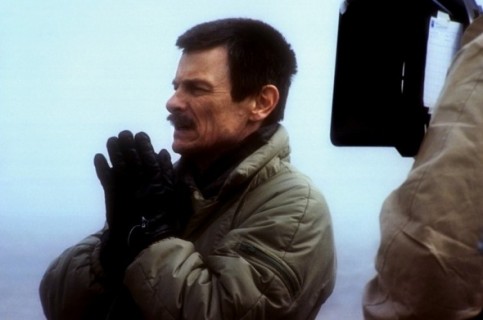
Tarkovsky stormed into the scene, serenely and compellingly brewing universes… of thought, character and style. He defines poetic art house cinema in the way Spielberg defines technical blockbusters. He had a glorious sense of the camera, characters and sound… the medium in its entirety that has continued to inspire generations of individualistic exercise in the medium.
Akira Kurosawa and Tarkovsky were so personally close, and have so many anecdotes attached to their association that compiling all of them would be too difficult. Kurosawa was a great admirer of Tarkovsky’s work and had written innumerable pieces in his praise- “Many people grumble that Tarkovsky’s films are difficult, but I don’t think so. His films just show how extraordinarily sensitive Tarkovsky is.” He said- “His unusual sensitivity is both overwhelming and astounding. It almost reaches a pathological intensity. Probably there is no equal among film directors alive now.” “I love all of Tarkovsky’s films. I love his personality and all his works. Every cut from his films is a marvelous image in itself. But the finished image is nothing more than the imperfect accomplishment of his idea. His ideas are only realized in part. And he had to make do with it.”
Ingmar Bergman said- “When film is not a document, it is dream. That is why Tarkovsky is the greatest of them all. He moves with such naturalness in the room of dreams. He doesn’t explain. What should he explain anyhow? He is a spectator, capable of staging his visions in the most unwieldy but, in a way, the most willing of media. All my life I have hammered on the doors of the rooms in which he moves so naturally. Only a few times have I managed to creep inside.”
Abbas Kiarostami said- “Tarkovsky’s works separate me completely from physical life, and are the most spiritual films I have seen”
Kieslowski said- “Andrey Tarkovsky was one of the greatest directors of recent years.”
Andrea Arnold said- “Mainly it’s just real life around me that inspires me […] But among filmmakers, I suppose Tarkovsky. He has something spiritual about him.”
Deepro Roy
Taste of Cinema

You must be logged in to post a comment Login